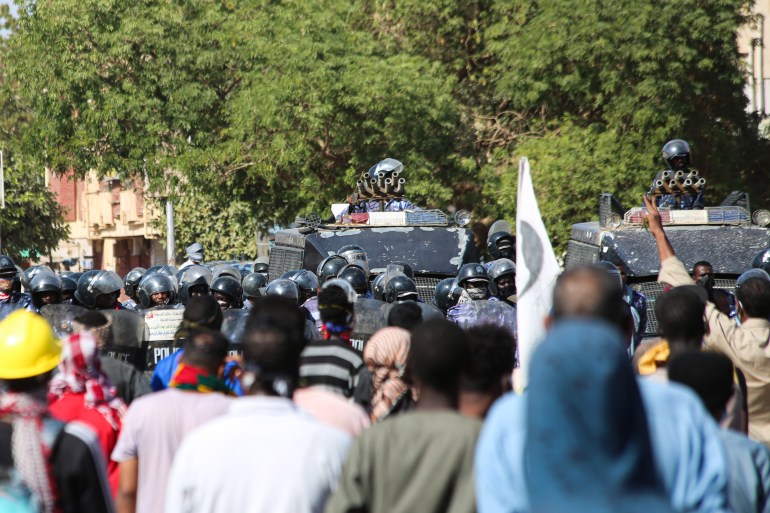Demonstrations renewed in the capital, Khartoum, and a number of other cities calling for civilian rule and the removal of the military from power, while the police fired tear gas canisters to disperse them.
And journalists at the French Press Agency reported that thousands of demonstrators gathered in a march to the presidential palace in central Khartoum, and protesters took to the streets of Omdurman (west of the capital) to demand civilian rule, and the accountability of those responsible for the killing of demonstrators.
Demonstrators in Khartoum, Wad Madani, Gezira State, Gedaref and Port Sudan (in the east of the country) chanted slogans rejecting the military rule, calling for the civil state and an end to the repression of the demonstrators.
For its part, the Central Committee of Sudan Doctors announced the killing of 3 protesters, two of them in the capital, Khartoum, and the third in the processions of Wad Madani, Gezira state. This brings the death toll since the protests began last October to 76, according to the committee’s data.
Police forces fired tear gas to disperse the demonstrations (Anatolia)
The resistance committees and political, professional and civil forces called for a demonstration within the framework of the movement rejecting the decisions of the President of the Sovereign Council, Abdel Fattah Al-Burhan, issued on the 25th of last October.
Yesterday, Sunday, the Sudanese authorities announced their intention to secure Monday's demonstrations, as well as the sovereign and strategic sites in central Khartoum, open Nile bridges, and continue Internet services.
In turn, the National Umma Party - the largest political party in the country - affirmed in a statement on Sunday that it stands "firmly and resolutely, calling for the immediate removal of the head of the coup and his entire coup authority, and the removal of all traces of the October 25 coup."
Since last October 25, Sudan has witnessed protests in response to exceptional measures taken by the army chief, Abdel Fattah Al-Burhan, most notably the imposition of a state of emergency and the dissolution of the Sovereignty Councils and the transitional ministers, which political forces consider a "military coup" in exchange for the army's denial.

